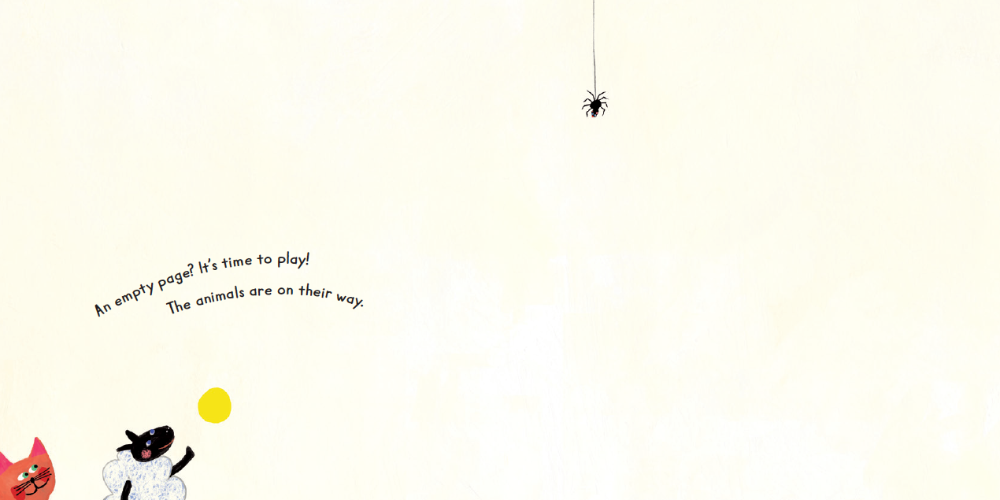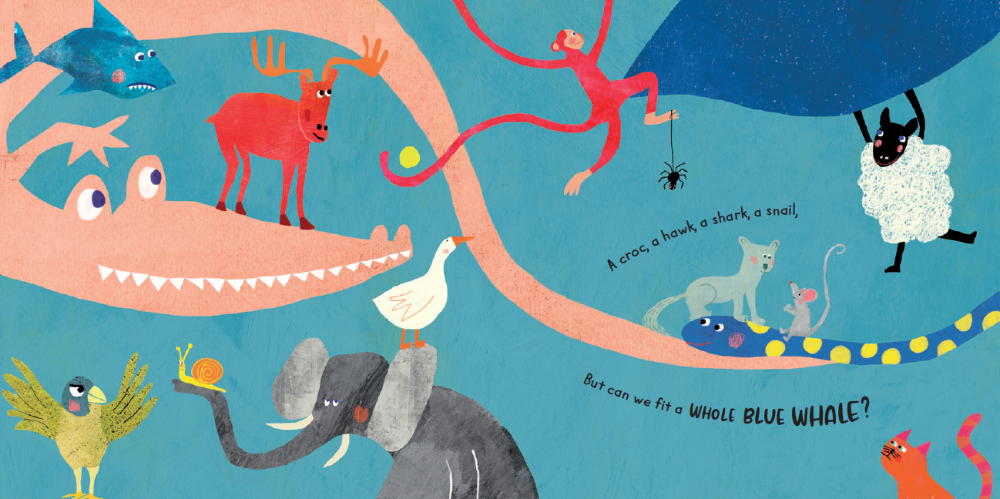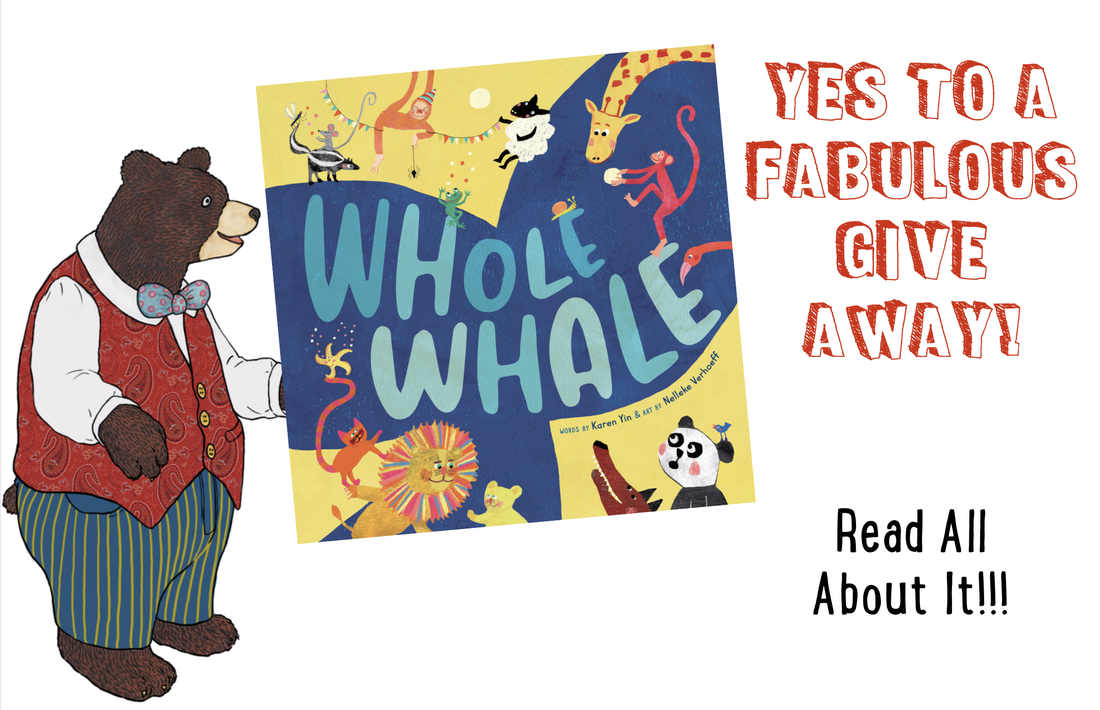|
By Karen Yin
“Don’t write in rhyme” was one of the first things I was told as I dipped my eager toes into kidlit waters. I heard it over and over—from kidlit authors, bloggers, instructors, critique partners, and peers online—well before I wrote Whole Whale, my debut picture book, which is in rhyme.
Whole Whale was written by Karen Yin, illustrated by Nelleke Verhoeff, and published by Barefoot Books (June 1, 2021).
But why not write in rhyme? After all, rhyming picture books are still being published and do quite well. In What If… (by Samantha Berger and Mike Curato) and Dozens of Doughnuts (by Carrie Finison and Brianne Farley)—two of my favorites from recent years—the rhyme heightens the story, not to mention my admiration for the writer’s artistry. Common reasons for discouraging rhyme include:
The caution to avoid rhyme is intended as an act of kindness, to save us time and the grief of rejection. I mean, I get it. For many agents and editors, the prospect of finding rare rhyming gems doesn’t outweigh the cringe of processing the kidney stones of poetry. So when Whole Whale emerged as rhyme, I was genuinely horrified. First, I didn’t want to make my life as a PB-writing noob harder by going against collective counsel. Second, my knowledge about rhyming could fill a thimble, maybe halfway. In Whole Whale, a story about making space for all, animals gather in the pages of the book to play, but the largest one can’t fit. The working refrain—“But surely not the whole whale!”—both haunted and inspired me. Before I knew the storyline, I could feel its rhythmic body. It marched with an urgency that mounted with every verse. In total contrast, when I attempted Whole Whale as prose, I could not find my way into the story. Suppressing rhyme was stressing me out, and it would be a relief to write it and give it form. So, instead of throwing my hands up, I viewed the industrywide discouragement as a challenge to make my rhyme and story arc impeccable. From the start, I was careful to not sacrifice story for the sake of rhyme—a common problem. My objective was to ramp up the whale’s predicament. If the lack of space seemed dire for her in the beginning, I wanted it to be utterly impossible toward the end, before the solution was revealed. After studying key chapters on poetry basics from A Poetry Handbook by Mary Oliver and Writing Picture Books by Ann Whitford Paul, two essential works from my personal library, I finished a draft and showed it to my critique partners. The original first verse: A mink, a moose, a mouse caboose. A monkey and a mother goose. A hundred animals fit in this tale, but surely not a whole whale! I had no trouble with perfect rhyme, which you’re encouraged to use when writing for children. That means matching the “-oose” in caboose and goose and the “-ale” in tale and whale. Done and done, right? No. Thankfully, my critique partners pointed out that several lines, including the third line above, were, um, awkward. Kind of bad. Horrible, even. At the time, it wasn’t feasible to take a course, and the more I consulted the internet, the more confused I got, so I made a decision to not get fancy with the rhythm and just stick to four iambs per meter: da-DA da-DA da-DA da-DA. Even though it made rhyming harder in some respects, I trusted that constraining my options would help me veer from tricky, advanced territory. Part of me wanted to play it safe, absolutely. But I was also sold on the mood of words ticking away. It was the heartbeat needed to underline my whale’s gigantic problem. The final version: A mink, a moose, a mouse caboose. A monkey and a mother goose. A croc, a hawk, a shark, a snail, but can we fit a whole blue whale?
To counter the potential monotony of syllables rocking between unaccented and accented from start to end, I chose unusual words, like caboose, throng, and prowl, to continually energize the language. Working with an iambic meter also reminded me to age down the writing, which is why, to my sorrow, I eventually let go of the word surely, despite it being an important part of my inspiration. (No worries. Surely lives on as the name of my plush whale.)
With the translation issue, I decided to ignore it—ha ha! But with good reason. In a blog post for Highlights Foundation, multibook author and faculty member Diana Murray shares this illuminating bit: “There are popular rhyming texts out there which have been translated into every imaginable language. In fact, the translations don’t necessarily have to rhyme. Furthermore, a book can still be considered very successful and profitable even if it doesn’t sell a single translation.” So don’t let concerns over translatability and international sales quash your rhyming dreams. For what it’s worth, according to Bookfinder.com, Whole Whale is already being sold in the U.S., U.K., Ireland, Canada, Australia, Italy, France, Switzerland, and Germany—in the original English text. As for how my non-rhymer rhyme fared in the cold, cruel world, this is what American Library Association’s Booklist said about Whole Whale: “The artwork is cheerful and bright with high-contrast colors, depicting wonderfully unusual animals.…But perhaps the truest charm of this book lies in its language, rich with assonance, alliteration, and internal and end rhymes and liltingly cadenced with read-aloud rhythm.” (May 15, 2021) In conclusion, if rhyme is in your heart, don’t hesitate to start. And now for my GIVEAWAY with a Mira created graphic. GIVEAWAY INSTRUCTIONS: For a chance to win a copy of WHOLE WHALE: 
BIO:
In 2019, Karen Yin graduated from The Children’s Book Academy with a record number of Golden Tickets (eight) from judges. She is the author of Whole Whale (Barefoot Books, 2021) and So Not Ghoul (Page Street Kids, 2022). Acclaim for her writing includes a Lambda Literary Fellowship, a Table 4 Writers Foundation grant, an SCBWI Nonfiction Grant, and selection of her flash fiction for the Los Angeles Public Library’s permanent collection. Winner of the 2017 ACES Robinson Prize, Karen founded several nationally acclaimed digital tools for writers and editors, including Conscious Style Guide, The Conscious Language Newsletter, and the Editors of Color Database. Karen is a member of SCBWI, the Authors Guild, and the Dramatists Guild. She lives with her partner and their cat friends on a mountain near Los Angeles. CONNECT: Website: https://karenyin.com Twitter: https://twitter.com/karenyin Instagram: https://www.instagram.com/karensoffice/ Goodreads: https://www.goodreads.com/karenyin Book recommendations: http://diversepicturebooks.com/ PURCHASE WHOLE WHALE: Amazon: https://www.amazon.com/Whole-Whale-Karen-Yin/dp/1646861639/ Barnes & Noble: https://www.barnesandnoble.com/w/whole-whale-karen-yin/1137639683 Bookshop.org (affiliate link): http://bit.ly/whole-whale-bookshop
Quickie note from Mira: I was truly thrilled when Karen sent me a copy of her book. I loved it so much that I made a video review of it. I hope you enjoy it!!!
7/5/2021 06:48:06 pm
Karen, Thank you for sharing your incredible journey. Perfect rhyme is a true challenge. Hats off and congratulations! What a fun story. :) Annette 7/5/2021 08:27:11 pm
As a writer of a rhymer currently in revision, I stand encouraged to keep going with it! I stopped for months after having gotten daunted at the collective advice from the community! Here’s hoping.
Sharon Giltrow
7/5/2021 10:31:27 pm
Thanks for sharing your rhyming tale, 7/6/2021 12:09:38 am
I really really love this book 7/6/2021 02:03:45 am
Thank you for telling your story! I’m so glad you stuck with it! 7/6/2021 05:31:15 am
Sometimes rhyme is irrepressible. I’m so glad you chose to follow its siren call! 7/6/2021 05:49:48 am
Thanks for sharing these insights about rhyming and your author's journey, Karen! Congratulations on WHOLE WHALE! I look forward to reading it. 7/6/2021 06:10:49 am
Oh my goodness, I laughed so hard at "the cringe of processing the kidney stones of poetry." I will now think of this every time I'm about to subject my poor critique partners to one of my rhyming manuscripts. Great post, Karen. Your book sounds amazing! 7/6/2021 06:42:34 am
Congratulations, Karen! Your book sounds fabulous and I enjoyed reading about its journey. 7/6/2021 07:06:23 am
I love hearing about the process behind the story. Congrats! 7/6/2021 07:22:59 am
It was so interesting to read about how you learned to use rhyme! I am not a rhymer at all, but sometimes lines or snippets arrive with my ideas and I try hard to completely ignore them.
Marty Bellis
7/6/2021 09:22:09 am
I love rhyme! Enjoyed seeing your first stanza in its two versions. Language is such fun to play with and makes all the difference. Congrats!
Suzan R Hendrickson
7/6/2021 12:16:57 pm
Congratulations, Karen! Love it and can't wait to read the whole book! I'm revising my own rhyming picture book and really appreciate reading about what you learned along the way, Thank you so much for sharing your rhyme journey!
Pamela Harrison
7/6/2021 01:15:29 pm
What an encouraging post! I love rhyming picture books and I love to create them. Congratulations! Whole Whale is filled with fun. 7/6/2021 04:34:32 pm
I love rhyming. I backed off because someone told me agents don’t like it. I think I will get back into it.
Christine Cassello
7/6/2021 06:42:15 pm
I consider rhymes my niche and find them easy to write, so I was glad to read your article and know that they can still be marketable. Did your publisher say they accepted them?
Nicole
7/6/2021 06:45:15 pm
Now that is encouraging. I love to rhyme. Gonna keep trying
Judy Sobanski
7/6/2021 08:55:44 pm
Wonderful post! Congratulations on your book! I love your advice to not worry about translations, too!
Louise
7/7/2021 02:59:24 am
Hi Karen
Brenna Jeanneret
7/7/2021 05:16:24 am
What a great article! The first PB I ever wrote was in rhyme. I knew nothing about it and like you, I could NOT write it in prose no matter how hard I tried. It took me months to perfect/learn how to get the rhyme right. It may not be ready for submission yet but your article has inspired me to keep working on it :) Thank you! 7/7/2021 05:56:28 am
I think that the most successful rhymes are the ones the rhymer can't resist! Those that are a chore for the writer risk becoming ones for the reader (though hard work can often become joyful exuberance towards the end!). 7/7/2021 11:18:27 am
What a fun, inspiring interview! Thank you for sharing your early draft - I love the candor. Best wishes to you! 7/7/2021 12:59:17 pm
Wonderful article describing your journey and your story's development. Children will certainly love the rhythm and the rhyme, the cadence and the beat of this well written book!
Deborah Foster
7/8/2021 06:39:28 am
"Suppressing rhyme was stressing me out, and it would be a relief to write it and give it form." - This is me! I've got two books that demand to be written in rhyme! So I enrolled in a rhyming course and I'm learning so much! Glad to see you did it! It gives me hope! 7/8/2021 10:07:36 am
I'm always so thrilled when I read about another rhyming book out in the world! I only write in rhyme because that music is in my blood. Sadly, rhyme gets a bad rap, but when it is good, it's SO good! Can't wait to read this one. Congrats!
Gretchen Huesmann
7/8/2021 11:53:48 am
Such amazing encouragement. And yes, aren't those critique partners the best!?! You (and they) keep me hopeful for my rhyme WIP's. Thanks a bunch for sharing your story! 7/8/2021 12:06:19 pm
Karen! I am so delighted to see your book. Loved working with you in the illustration class last year!
Janet Bryce
7/8/2021 05:18:28 pm
I love your book. I taught preschool and Kindergarten and I used rhyme all the time.
Laurie Dunlop
7/9/2021 05:46:20 am
My students love rhyming books! So glad you stuck with it...the results look delightful! 7/10/2021 07:58:42 am
Great interview! So glad you didn't suppress your rhyme--your book sounds fun!
Julie Fruitticher Schroeder
7/10/2021 08:44:20 am
This is such an encouragement for writers on the journey to publication. Thank you for sharing your story!
Charlotte Dixon
7/10/2021 11:15:32 am
Karen--Thank you for sharing your encouraging, inspiring journey into rhyme. You've given a lot of folks hope! 7/11/2021 03:12:28 pm
Thank you for this! Some stories just come out in rhyme. It’s the heart of the story. And I would stress out - “No Rhyme!!” So glad to see, if ensuring it’s done well, there’s a place for it!
Laura Bower
7/12/2021 09:46:02 am
Thank you Karen for the encouragement to keep following the rhyme in my heart (and head!). :-) Congratulations on a Whole Whale!!
Annie Rollins
7/12/2021 01:10:43 pm
Rhyme is so hard to pull off, but kids love it! I can't wait to share Whole Whale with my class.
Hannah Roy LaGrone
7/13/2021 05:20:56 am
I have a few PB manuscripts in rhyme, and this post really encouraged me! Can’t wait to read this book 🐳
Sandie Vaisnoras
7/14/2021 01:01:44 pm
What a fantastic story of your writing journey. I can't wait to read this. Comments are closed.
|
We are so excited to be mixing things up at CBA, beginning with some delicious additions to the Blogfish. Meet our awesome bloggers!!
Here's our lineup: 1st Mondays begin with former school psychologist Dr. Debra Collins who will be writing about Social emotional Learning in kidlit and behind the scenes as well as Jewish children's books. 2nd Mondays will feature super smart Melissa Stoller whose career is taking off with several new books. 3rd Mondays will feature our new blogger coming soon. 4th Mondays features new blogger, the fabulous Brentom Jackson, who has a beautiful approach to blogging. And 5th Mondays we'll be taking a break Archives
July 2024
|
|
Discover
|
About Us
|
Join Us
Join our Community and receive a fabulous free gift, KidLit tips, newsletters, scholarship info, contests, and more!
Join our KidLit Mentorship |
Social Media
Interact with our FaceBook Group or follow us on:
|
© 2010-2024 All content on this website is copyrighted. Sorry, all courses are non-refundable.



 RSS Feed
RSS Feed
